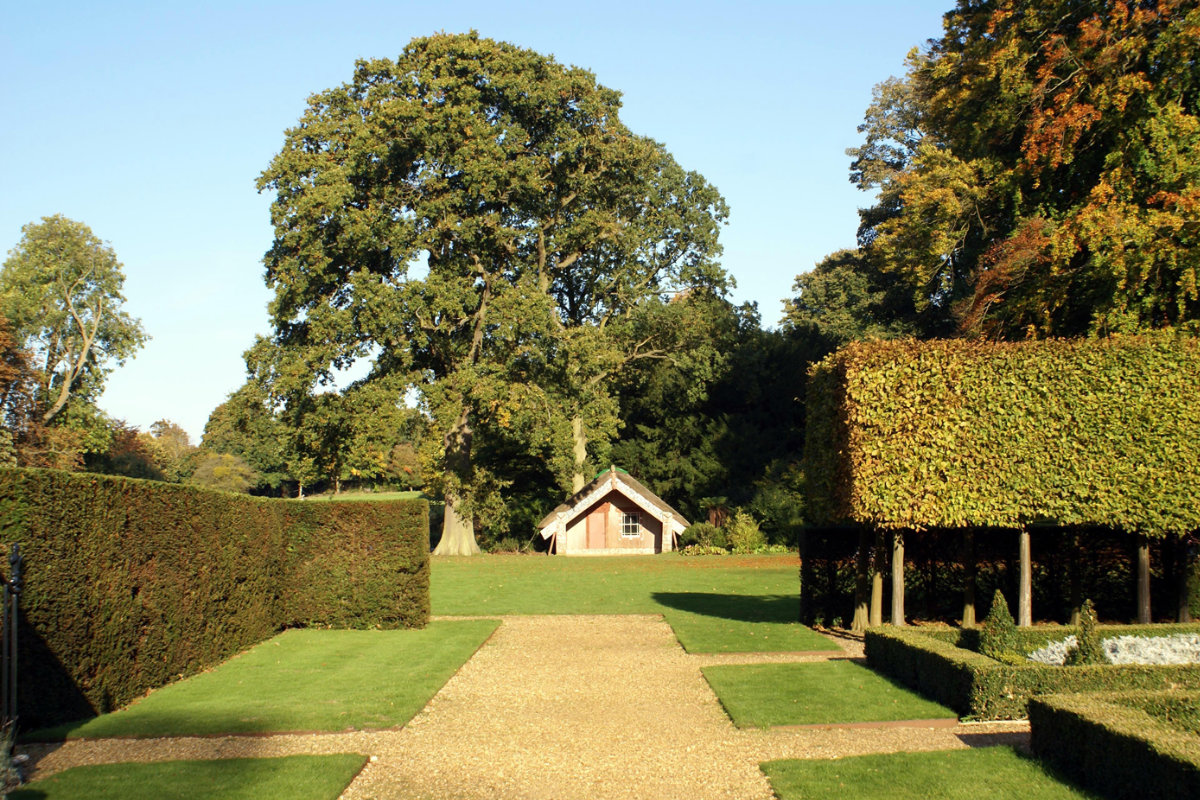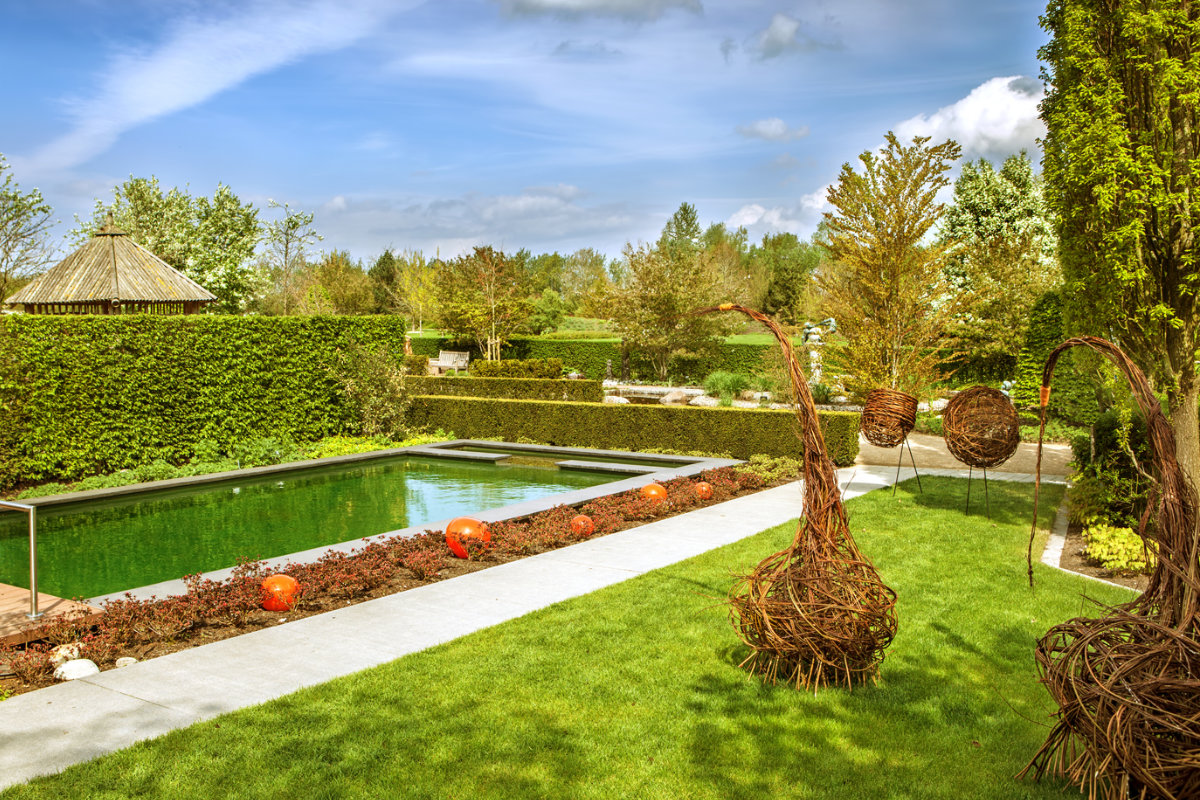Types of hedge plants and their qualities
Hedge plants make perfectly green fences that give you lots of privacy in a very natural way. On this page you can find useful information on the most important types of hedge plants used for green garden fencing.
Go to: choosing a hedge plant – professional advice – request quotes
Types of hedges
There are lots of different kinds of hedge plants, but not all hedges are equally suitable to use as a fence. In the survey below, you can find a few of the most sold hedge plants and their advantages.
| Types of hedge plants | |
|---|---|
| Beech hedge | |
| Hornbeam hedge | |
| Yew hedge | |
| Privet hedge | |
| Laurel hedge | |
| Installation costs: ± £26 à £43 per hour | |
| Leaving the planting of your hedge to a professional garden contractor, and wondering about the costs? Request your noncommittal quotes on our quotation page | |
Beech hedge (Fagus Sylvatica)
The beech hedge is without a doubt one of the most popular types of hedges. They grow relatively fast, don’t require much maintenance, and are evergreen so to guarantee your privacy even then. There are green and red beech hedges and both require the same amount of maintenance. The red beech hedge has a slightly more luxurious look so they cost quite a bit more.
Read more about beech hedges.
Price: Green beech hedge: from £30 / Red beech hedge: from £65
Pros: cheap, evergreen, easy maintenance, fast grower.
Hornbeam hedge (Carpinus Betulus)
The hornbeam hedge, unlike the beech hedge, is not an evergreen, but makes up for it by needing less maintenance to the soil. Even a long-lasting wet soil (clay / loam) forms no problem at all for the hornbeam. A hornbeam hedge is a a bit more thickly grown than a beech hedge and has a different type of leave. If privacy is not really an issue, then these hornbeam hedges are the way to go.
Read more about hornbeam hedges
Price: per 10 (49-59 in): from £35
Pros: Cheap, can withstand different kinds of soil, strong, thickly grown
Yew hedge (Taxus Baccatta)
Yew is a hardy annual, conifer plant that is very popular amongst the garden fences, because of its decorative outlook. It can grow very tall, is not too difficult to maintain and can be planted in the sun as well as in the shade. Be careful, however, as yew is a poisonous plant. Take this into account if you have children, pets or farm animals. This type of hedge plant provides lots of privacy, throughout the year.
Read more about yew hedges.
Price per 10 (49-59 in): Taxus baccatta £255 / Taxus media Hicksii £320
Pros: evergreen, easy maintenance, thickly grown
Privet hedge (Ligustrum Ovalifolium)
There are e few kinds of privet available. The Ligustrum Ovalifolium is by far the most popular because it’s an evergreen hedge plant. The privet is a fast grower, so it needs regular trimming. Only then will it stay nice and dense. In summer (between July and August) you can see small white flowers in the hedge, and in September you get little black berries in the thick foliage.
Read more about privet hedges.
Price per item (49-59 in): £21
Pros: Evergreen, easy maintenance, fast grower, relatively cheap
Laurel hedge (Prunus)
The laurel hedge is a popular hedge plant because it’s evergreen and grows quickly (16-20 in per year). It quickly forms a dense hedge and grows considerably in width as well. There are a few different types of laurel. Amongst the hedge plants, you’ll find that the Prunus Rotundifolia is a very popular choice. This type can grow up to almost 20 ft. The white flowers that grow in spring make this hedge particularly decorative.
Read more about laurel hedges.
Price per item (49-59 in): £14.5
Pros: Relatively cheap, evergreen, fast grower, decorative

Which hedge plant do I choose?
Are you struggling with choosing the perfect hedge from this large supply of hedge plants? Ask yourself the following questions:
Which type of soil are you dealing with?
Is it a long-lasting wet soil, more clay-like or is the ground rich in humus and more acidic? It’s important to know this stuff, as some types of hedges require more care when it comes to the soil they grow in. It’s always possible to add a soil improver, but a wet clayey soil, is always going to stay wet.
Does your hedge need to be evergreen?
Privacy is always an important factor when choosing a hedge plant. This doesn’t really matter, of course, if you’re planning on installing closed garden fence panels or when privacy is not an issue.
Don’t mind trimming? Or would you rather limit the maintenance to a minimum?
Every garden needs some work. But if you want to limit the amount of maintenance, you’d do well to buy hedges that only need trimming once or twice a year. In that case, hornbeam or yew are the way to go.
Is your hedge planted right out in the sun, or in (semi-)shade?
The amount of sun plays a big role as well when choosing the right hedge. Some plants thrive better in the shade, while others prefer sunshine throughout the day.
What is your budget?
The cost of hedge plants that grow slowly is generally higher, because growers need to keep them for a longer time before they reach the right height. A good example of a slow-growing hedge plant is Yew.
Choosing the perfect hedge is in part a highly personal matter. Some prefer beech because they like the shape of its leaves, others choose a conifer like yew because it speaks more to them.
Professional gardening advice
No green thumb but still dreaming of a nice, green fence? Ask for professional gardening advice. This is entirely noncommittal and you’re provided with some great advice! Every garden is unique and there are so many possibilities in the way of garden design. An expert can list your wishes and specifically explain which hedge is the best choice for you and why. Request noncommittal prices and quotes? Please use our online quotation service.

